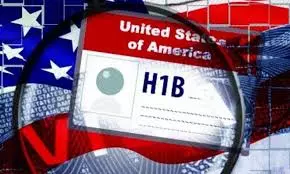
It’s important to have business credit. But you don’t necessarily need to pay a business credit building service to get it.
These services can help you establish and build business credit. Typically, they do this by:
Charging you a recurring subscription cost.
Reporting that fee to commercial credit bureaus as an open tradeline.
Letting you show positive habits by consistently paying those bills on time.
Many businesses can do that for free on their own, though. For instance, you can set up tradelines with your existing vendors or use business credit cards. Start there.
But if those aren’t options for you — or if you need additional insight into your business credit score — consider a business credit builder.
Frequently asked questions
What is business credit?
Your business credit is a history of how your company pays its bills. If you pay on time and in full, your business credit scores will be higher; if not, they’ll likely be lower.
A solid business credit history can help strengthen business loan applications. It also signals to suppliers and business partners that you’ll pay them on time.
Think about the factors that influence personal credit — how many lines of credit you have, how old they are and how often you pay them on time or early. The same principles generally apply to business credit.
When do you need business credit?
Your business credit becomes important when:
You’re making deals with suppliers or customers who need to do due diligence on your company.
You’re applying for an SBA loan.
You’re making deals with suppliers or customers who need to do due diligence on your company.
If your personal credit score is in the bad or fair ranges (a FICO score below 690), focus on building that first. Your personal credit will determine whether you can get business credit cards and will be part of most of your financing applications. Here’s how you can improve your personal credit.
In the meantime, look for opportunities to build your business credit for free. Then, when you set your sights on applying for an SBA loan or winning a big supplier, you get more tactical about your business credit.
How do you get business credit?
Three main credit bureaus monitor business credit and generate reports and scores: Dun & Bradstreet, Experian and Equifax. Some lenders and suppliers report payment history to all three, but many report to just one or two.
To establish business credit, get an Employer Identification Number and a so you’re visible to business credit bureaus.
Then, start borrowing and paying back small amounts of money. Tradelines, credit cards and business credit builder services can help you do that. You’ll need at least three tradelines from at least two suppliers to get a business credit score from Dun & Bradstreet.
» FROM OUR NEWSLETTER: An easy way to jumpstart your business credit
Should you monitor your business credit?
Yes. Business identity theft is possible. And you can’t freeze your business credit the way you can with your personal credit. Keep an eye on your business credit reports for any tradelines you don’t recognize.
Pay attention to your credit when you’re preparing to apply for an SBA loan or a big contract, too. A business credit score called the SBSS score is part of the SBA 7(a) small loan application. That score is not publicly available, but your other scores may give you a sense of where you stand. And if you’re working with a large business partner, they may check your business credit before committing to a deal with you.
You can see four scores from Dun & Bradstreet for free, but you’ll have to pay nearly $50 each for your Experian and Equifax credit reports. If you plan to check your reports multiple times a year, paying for a credit building or monitoring service may be worth it.
What is business credit?
Your
business credit
is a history of how your company pays its bills. If you pay on time and in full, your business credit scores will be higher; if not, they’ll likely be lower.
A solid business credit history can help strengthen business loan applications. It also signals to suppliers and business partners that you’ll pay them on time.
Think about the factors that influence personal credit — how many lines of credit you have, how old they are and how often you pay them on time or early. The same principles generally apply to business credit.
When do you need business credit?
Your business credit becomes important when:
You’re making deals with suppliers or customers who need to do due diligence on your company.
You’re
applying for an SBA loan
.
You’re making deals with suppliers or customers who need to do due diligence on your company.
If your personal credit score is in the bad or fair ranges (a FICO score below 690), focus on building that first. Your personal credit will determine whether you can get business credit cards and will be part of most of your financing applications. Here’s
how you can improve your personal credit
.
In the meantime, look for opportunities to build your business credit for free. Then, when you set your sights on applying for an SBA loan or winning a big supplier, you get more tactical about your business credit.
How do you get business credit?
Three main credit bureaus monitor business credit and generate reports and scores: Dun & Bradstreet, Experian and Equifax. Some lenders and suppliers report payment history to all three, but many report to just one or two.
To establish business credit, get an
Employer Identification Number
and a
so you’re visible to business credit bureaus
.
Then, start borrowing and paying back small amounts of money. Tradelines, credit cards and business credit builder services can help you do that. You’ll need at least three tradelines from at least two suppliers to get a business credit score from Dun & Bradstreet.
» FROM OUR NEWSLETTER:
An easy way to jumpstart your business credit
Should you monitor your business credit?
Yes. Business identity theft is possible. And you can’t freeze your business credit the way you can with your personal credit. Keep an eye on your business credit reports for any tradelines you don’t recognize.
Pay attention to your credit when you’re preparing to apply for an SBA loan or a big contract, too. A business credit score called the SBSS score is part of the
SBA 7(a)
small loan application. That score is not publicly available, but your other scores may give you a sense of where you stand. And if you’re working with a large business partner, they may check your business credit before committing to a deal with you.
You can see four scores from Dun & Bradstreet for free, but you’ll have to pay nearly $50 each for your Experian and Equifax credit reports. If you plan to check your reports multiple times a year, paying for a credit building or monitoring service may be worth it.
What is a business credit building service?
A business credit building service is usually a subscription. When you pay your monthly bill, the provider reports that payment to business credit bureaus as a tradeline. Several months of on-time payments can help establish or boost your business credit.
Some services offer additional business credit benefits. For instance, Nav users can get a charge card that it will report as a second line of credit. Most services also give you access to business credit monitoring tools.
Pros and cons of business credit building services
Pros
Flexibile qualification requirements.
May impact your business credit scores quickly.
Some help build your personal credit too.
Cons
More expensive than other tools that build business credit.
Closing your account may have a negative impact on your scores.
When to use a business credit building service
We recommend starting with free business credit building options. But these may not be available to every business, or they might not meet your needs.
Here are some instances in which you may want to move on to a business credit building service.
You have bad credit and low cash on hand. You can get a secured business credit card with a FICO score below 630. But you’ll have to put down a cash deposit, potentially $1,000 or more. A credit builder will have lower immediate costs — but you won’t get that money back, like you could with a security deposit.
You need more tradelines. Some business credit scores, like PAYDEX, require multiple tradelines. And in general, demonstrating more positive payment history is useful. A credit builder can quickly add to that history. This can also be helpful if your vendors don’t support net-30 accounts and you don’t want a business credit card.
You value the other services offered. Many of these products include additional benefits. For instance, you may be able to use them to improve your personal credit. Or they provide business credit monitoring services. If you already planned to pay for tools like those, packaging them with a business credit builder could make sense.
Some business owners may turn to these services for quick results. But it can take time to build business credit, even with a credit building product.
Alternatives to using a business credit building service
There are several ways to build your business credit that don’t require paying a monthly bill. Start with those before you subscribe to a business credit building service.
Your options include:
Establish tradelines with your suppliers. Office supply companies like Staples and Uline let you buy things on account, then report your payments to business credit bureaus. You don’t have to qualify for these services like you would with a credit card, but you might not need what they sell.
Open a no annual fee business credit card. If you pay your bill in full every month, this is a free way to build business credit. You may also earn cash back or points. To qualify, you’ll need good or excellent personal credit (typically a FICO score above 690).
Consider a secured business credit card. This can be a good option if your credit score isn’t high enough to get a traditional business credit card. You’ll have to put down a cash deposit to get one of these. But then you can use it like a typical credit card. Again, if you pay your bill in full, you’ll be able to build your business credit without owing interest.
Best business credit building services
These services report your payments to at least one business credit bureau. Most also offer some access to your credit scores and reports.
Unlike your personal credit, you aren’t entitled to see your business credit reports for free. You’ll have to pay if you want to monitor it. That’s part of the value credit building services offer.
Nav Prime
Price: $39.99, $49.99 or $74.99 per month. Discounts available if you pay quarterly.
Best for: Building your business and personal credit at the same time.
Nav Prime has some useful differences from other services on our list. It reports to all three business credit bureaus and helps build your personal credit. But it’s also the most expensive.
With the base subscription, Nav reports your monthly Nav Prime payment as a tradeline to all three business credit bureaus.
If you pay an extra $10 per month, you’ll get the Nav Prime Card. Nav reports card usage as an additional business tradeline to all three bureaus plus the Small Business Financial Exchange (SBFE), a data source used by several business credit services. It can also report use to Experian’s personal credit bureau, which can help improve your personal credit.
The highest tier includes your SBSS score, which is the score SBA 7(a) small lenders use, plus your own coach.
The Nav Prime Card is a charge card, not a credit card. That means you can’t carry a balance from month to month; you’ll have to pay it off in full. Technically, the Nav Prime Card isn’t a secured card. But your credit limit does mostly depend on how much cash you have in a linked repayment account.
Lili BusinessBuild
Price: First month free. After that, $18 per month for three months, then $30 per month.
Best for: New businesses that also need a bank account. You have to be a Lili business banking user to sign up for BusinessBuild.
Lili is an online business banking service with a decent business checking account. (Here’s NerdWallet’s review.) In 2025, the company added a business credit building service. When you open a Lili checking account, you’ll have the option to add BusinessBuild on top.
BusinessBuild includes a secured credit card. You choose how much cash to deposit, and that determines your credit limit. As you use the card, Lili reports your payments to Dun & Bradstreet. The subscription fee does not count as a tradeline. Users get free access to six different D&B credit scores.
If you’re considering Lili for your business checking account, this is a good way to accomplish two things at once. You’ll need a different strategy to build your personal credit, though.
eCredable Business Lift
Price: $19.95 or $39.95 per month.
Best for: Reporting your utility payments as tradelines.
eCredable’s base plan is affordable, but it only reports to Equifax. You also can’t monitor your business credit scores through the service.
eCredable connects to your existing service providers, including utility companies, phone and Internet service. It downloads data about your payment history, then reports your payments to Equifax. D&B and Experian don’t accept these reports.
If you upgrade to Business Lift+ for an extra $20 per month, eCredible reports your Business Lift subscription as a tradeline to all three business credit bureaus. (That’s essentially the same service for the same price as Nav Prime’s base plan.)
FairFigure Lift
FairFigure offers free business credit scores and reports once you provide some information about your business. After that, you can sign up for its business credit monitoring service. This costs $30 per month and is reported as a tradeline.
There are two ways to receive financing. With FairFigure Lift, the company will deposit funds into your bank account. With the FairFigure Capital Card, it adds money to a debit card you use to make purchases. In both cases, FairFigure takes repayments directly from your business bank account.
You’ll have to repay quite a bit more than you borrow, though. FairFigure uses an example of purchasing $745 of your future receivables for just $500. That borrower would pay back about 1.5 times as much as they borrowed.
FairFigure reports subscription and loan payments to Equifax and SBFE. They also report to CreditSafe USA, a less prominent business credit reporting company.
How to use a business credit building service
Follow these steps to get the most value out of your business credit builder.



